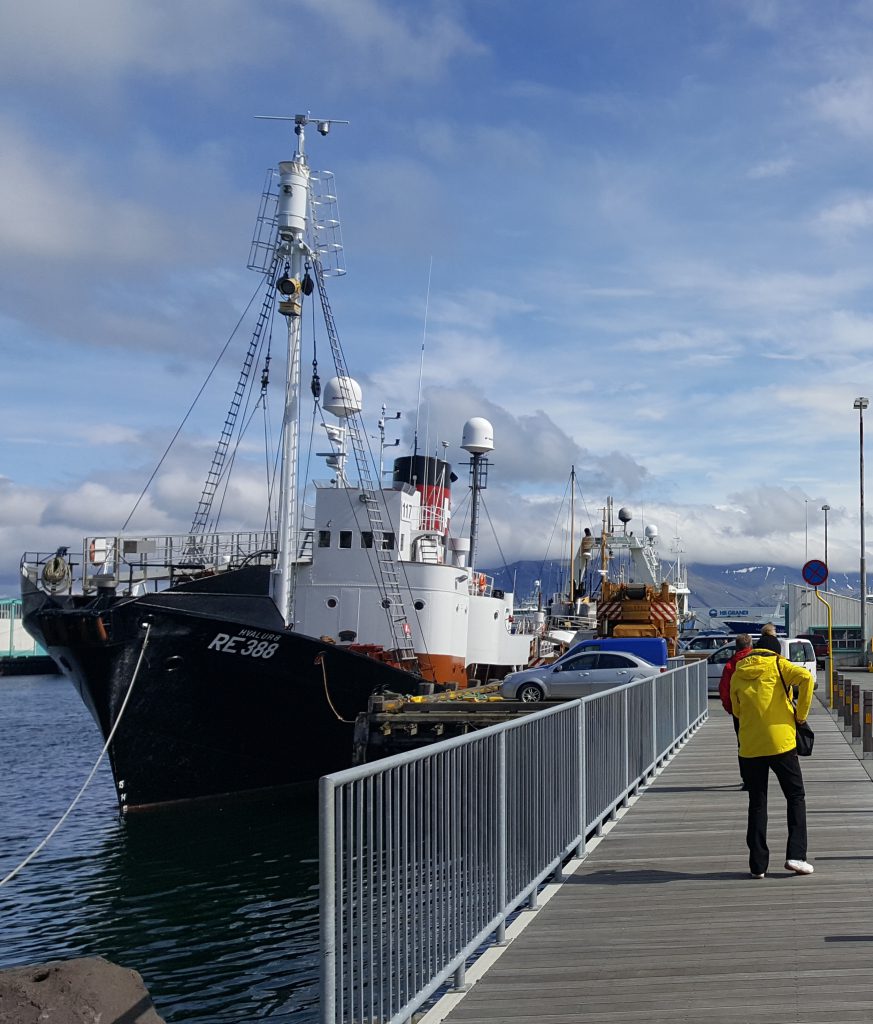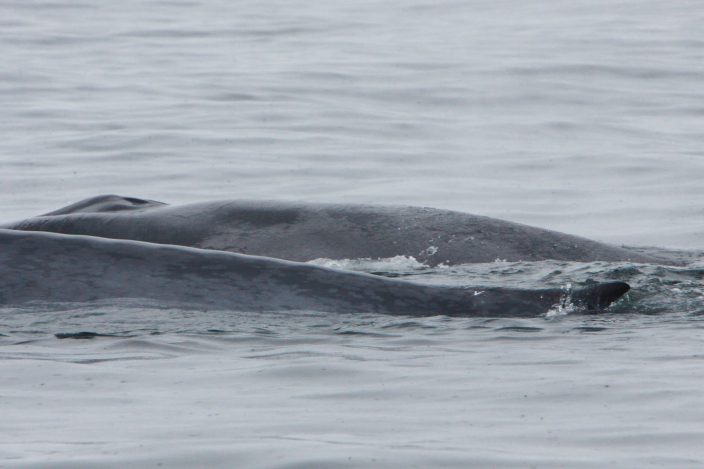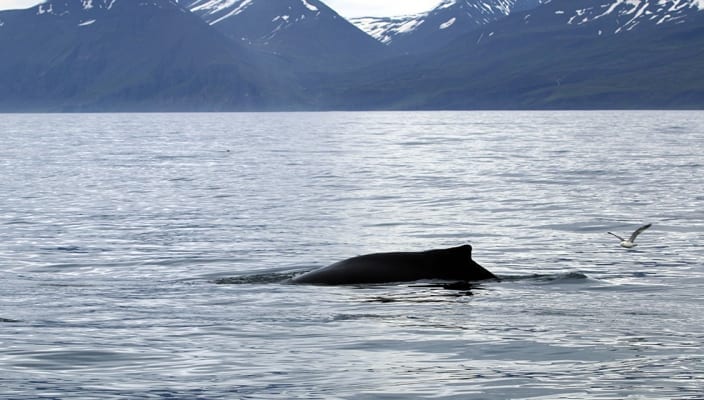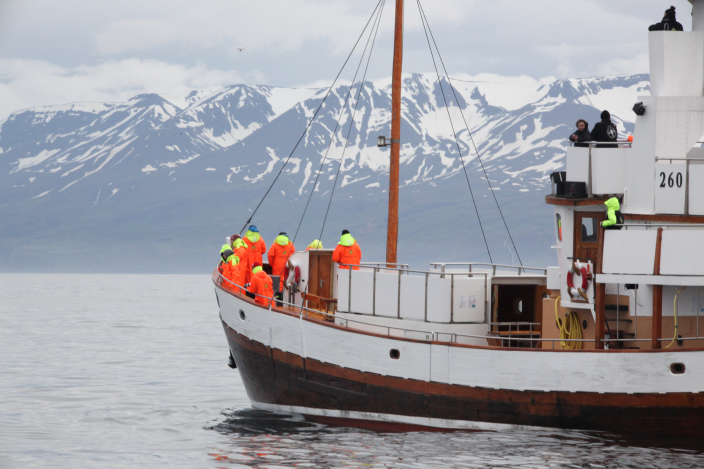Authorities in Iceland recently decided not to grant a license to hunt fin whales this summer. Svandis Svavarsdottir, Minister of Food, Agriculture and Fisheries, made the decision following an inspection by welfare officers from the Food and Veterinary Authority which found that the methods used to kill the animals resulted in excessive cruelty and were not compatible with Iceland’s Animal Welfare Act. Inspectors recorded the killing of a fin whale taking upward of five hours. The Minister said in a statement: “I have decided to suspend all whaling operations.”
While the Animal Welfare Act has been in force since 2014, it has never before been used as an instrument to manage the whale hunt. The Act states: Hunting must always be conducted in a manner that minimises the pain inflicted on the animals and the time needed to kill them. Hunters must do everything within their means to kill any animal which they have injured. In August of last year Minister Svavarsdottir issued a regulation requiring the Food and Veterinary Authority (MAST) to carry out regular inspections of whaling hunts. The purpose of the inspection was to promote improved animal welfare during whaling.
The agency’s finding in their report was that an unacceptably high percentage of hunted whales suffered during killing. MAST concluded “that the hunting of large whales does not comply with the objectives of the law on animal welfare and raises questions about the future of the activity.” In response, Minister Svavarsdottir stated “This alarming report underscores the need for a discussion in Iceland about the values we want to be known for. I believe that industries incapable of guaranteeing animal welfare should be considered part of our past rather than our future. This report, along with the expert council on animal welfare’s findings, will serve as essential background material for making decisions about the future of whaling post 2023. “
The Irish Whale and Dolphin Group welcomes this decision and hopes that Iceland will ultimately decide not to issue further licenses to hunt whales in their waters. Ireland has a long-established and important maritime connection with Iceland, not least through the Atlantic population of humpback whales, with individual whales shown using both Irish and Icelandic waters.
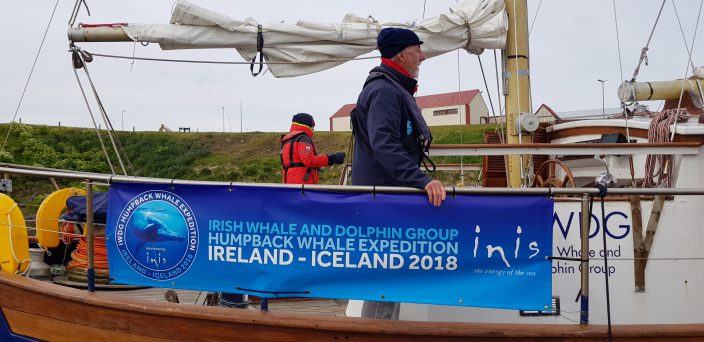 In 2018 the IWDG undertook an expedition to Iceland aboard their research vessel Celtic Mist to raise awareness about the humpback population, to increase knowledge, to gather data, and to strengthen the maritime and scientific relationship between the two countries. The crew of scientists achieved 94 sightings of at least 13 species over the course of a successful trip, with 25 humpback whales sighted.
In 2018 the IWDG undertook an expedition to Iceland aboard their research vessel Celtic Mist to raise awareness about the humpback population, to increase knowledge, to gather data, and to strengthen the maritime and scientific relationship between the two countries. The crew of scientists achieved 94 sightings of at least 13 species over the course of a successful trip, with 25 humpback whales sighted.
IWDG Sightings Officer Pádraig Whooley commented “To date we have matched four of the “Irish” humpback whales to Iceland. Two from the Husavík area on the North coast which skirts the Arctic Circle, with another (#HBIRL23) match to the Flaxafloí area near Reykavik to the south. Among the many humpback sightings made by IWDG during their expedition to Iceland in 2018, we found #HBIRL25, who had been recorded five years earlier off the Blasket Islands, Co. Kerry in September 2013. This was a nice reminder to all the expedition members of our two nations shared humpback whale population. “
At the same time Celtic Mist was sailing the waters of Iceland, the Hvalur 9, a whaling vessel owned by the last active whaling company in Iceland, Hvalur Hf, killed a whale in controversial circumstances. Animal rights campaigners Hard to Port reported the possible killing of a protected blue whale, publishing photographs from the port of Hvalfjörðu where the animal was butchered. The Icelandic Marine and Freshwater Research Institute (MFRI) conducted a DNA analysis of the dead animal and concluded that it was a hybrid of a fin whale and a blue whale, not a blue whale. These rare hybrid whales are not offered any legal protection from hunting in Iceland and the matter was dropped.
The decision to pause the take of endangered fin whales does not affect the licensing of minke whale hunting which can legally continue. Dr Guðjón Már Sigurðsson of the MFRI told the IWDG “At the moment it is only a temporary suspension on fin whale hunting until 31 August. Minke whale hunting is still allowed, although there has been very little activity there in recent years.” Most fin whale meat from Iceland has been exported to Japan but demand there has been falling. There is a dwindling local market in Iceland for minke whale meat, which is largely based on serving the meat to tourists. The International Fund for Animal Welfare has campaigned to raise awareness among tourists and restaurants with their “Meet Us Don’t Eat Us” campaign and claim to have reduced tourist consumption of whale meat by three quarters since the campaign’s inception in 2011.
Whaling in Iceland has a long history and has continued intermittently in territorial waters despite a world-wide moratorium under the International Whaling Commission that came into effect in 1985. Between the date of the moratorium and 2018, Iceland’s total recorded catch of both minke and fin whales was 1,796 animals. Whaling exists in tension with a well-developed whale watching tourism industry in Iceland, the UN Department of Economic and Social Affairs estimates that whale watching generates an estimated US$ 26 million in revenue from 350,000 whale watchers annually. In contrast the whaling industry is no longer considered to be profitable due to falling demand. This decision seems likely to lead to a permanent effective ban on whaling in Iceland, a development which the IWDG would welcome.
The CEO of Hvalur Hf, Kristján Loftsson, was invited to contribute to this article but to date has not responded.
This article appeared in the July Edition of the Marine Times
Dr Stephen Comerford
Marine Policy Officer

